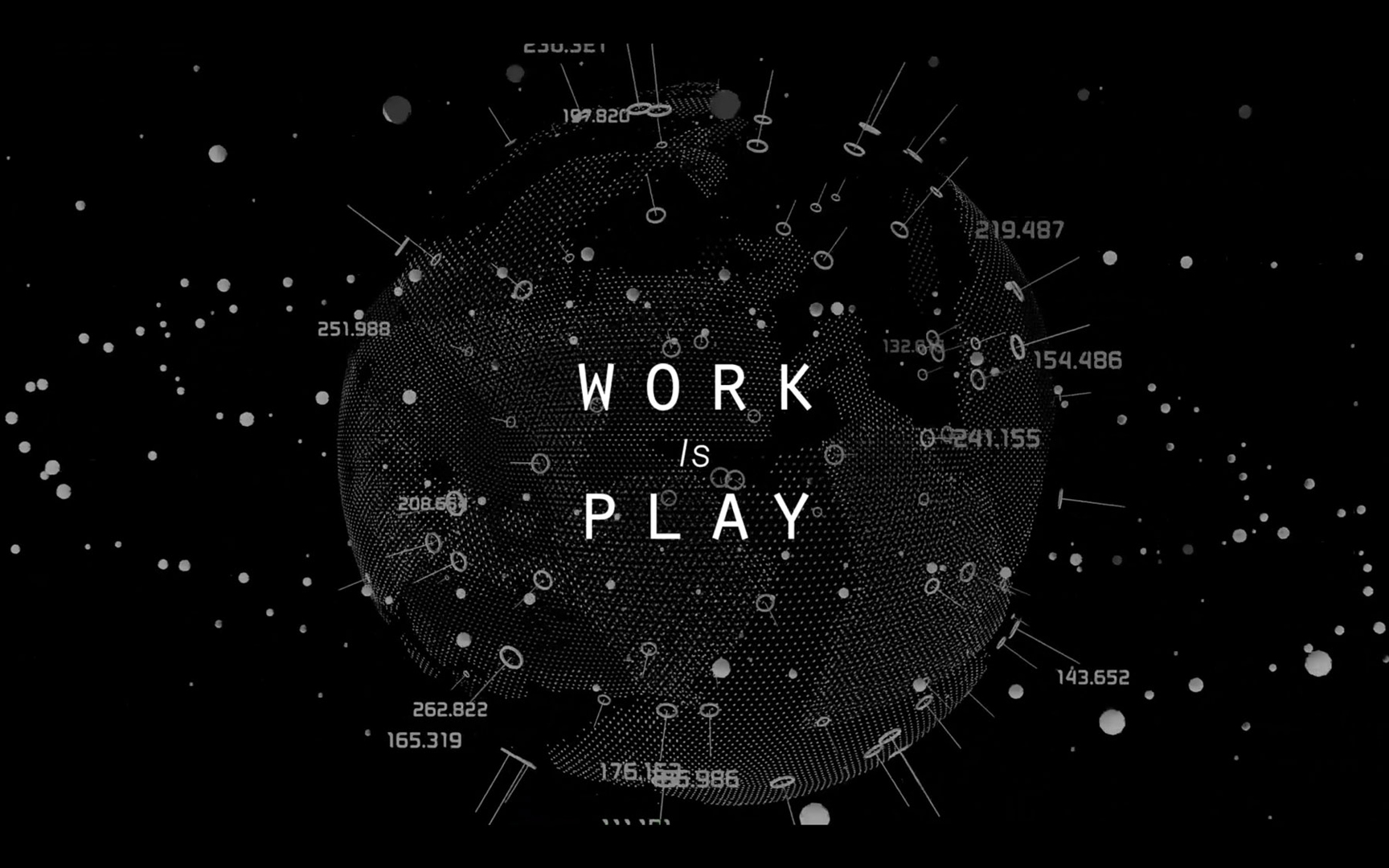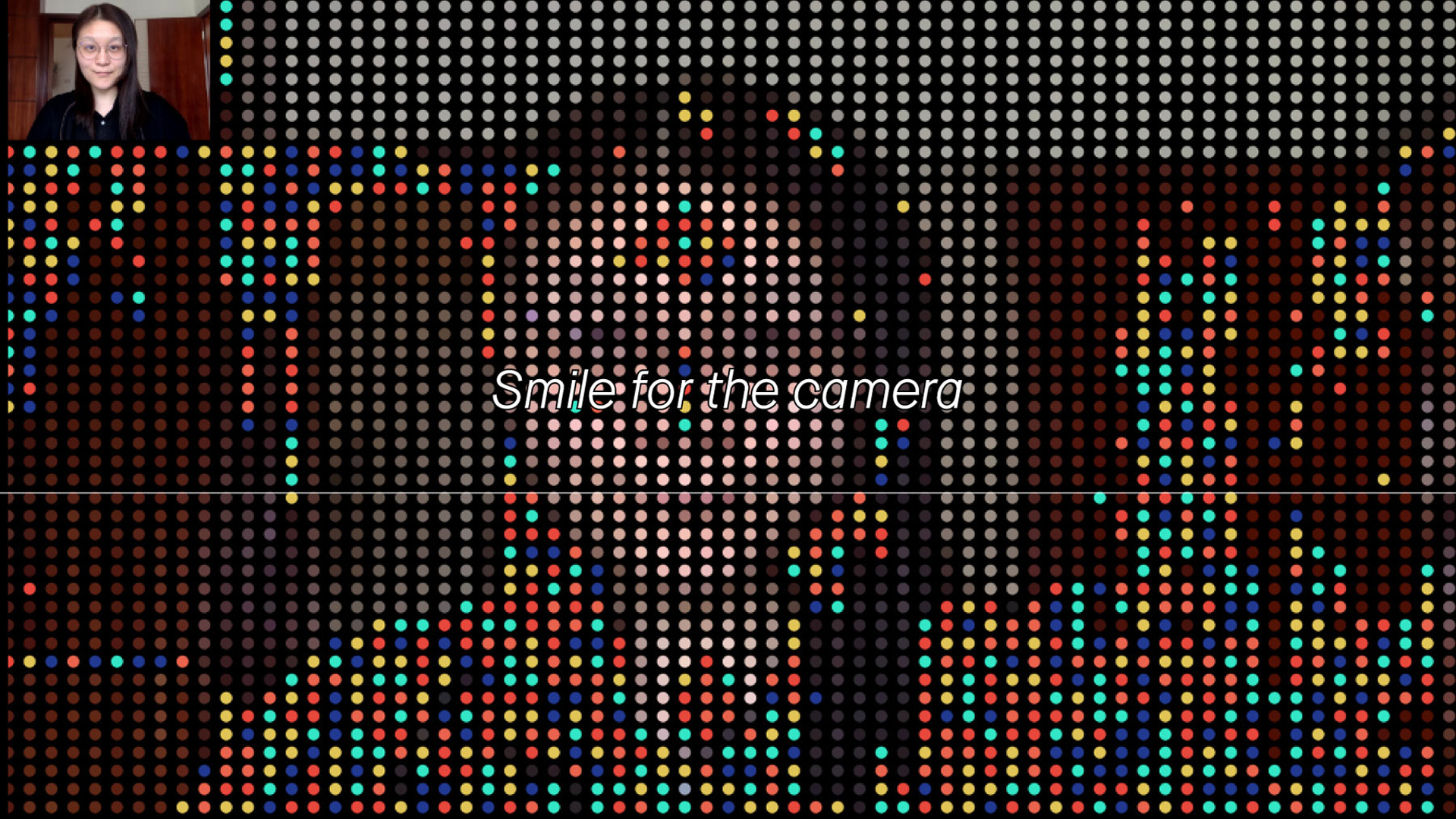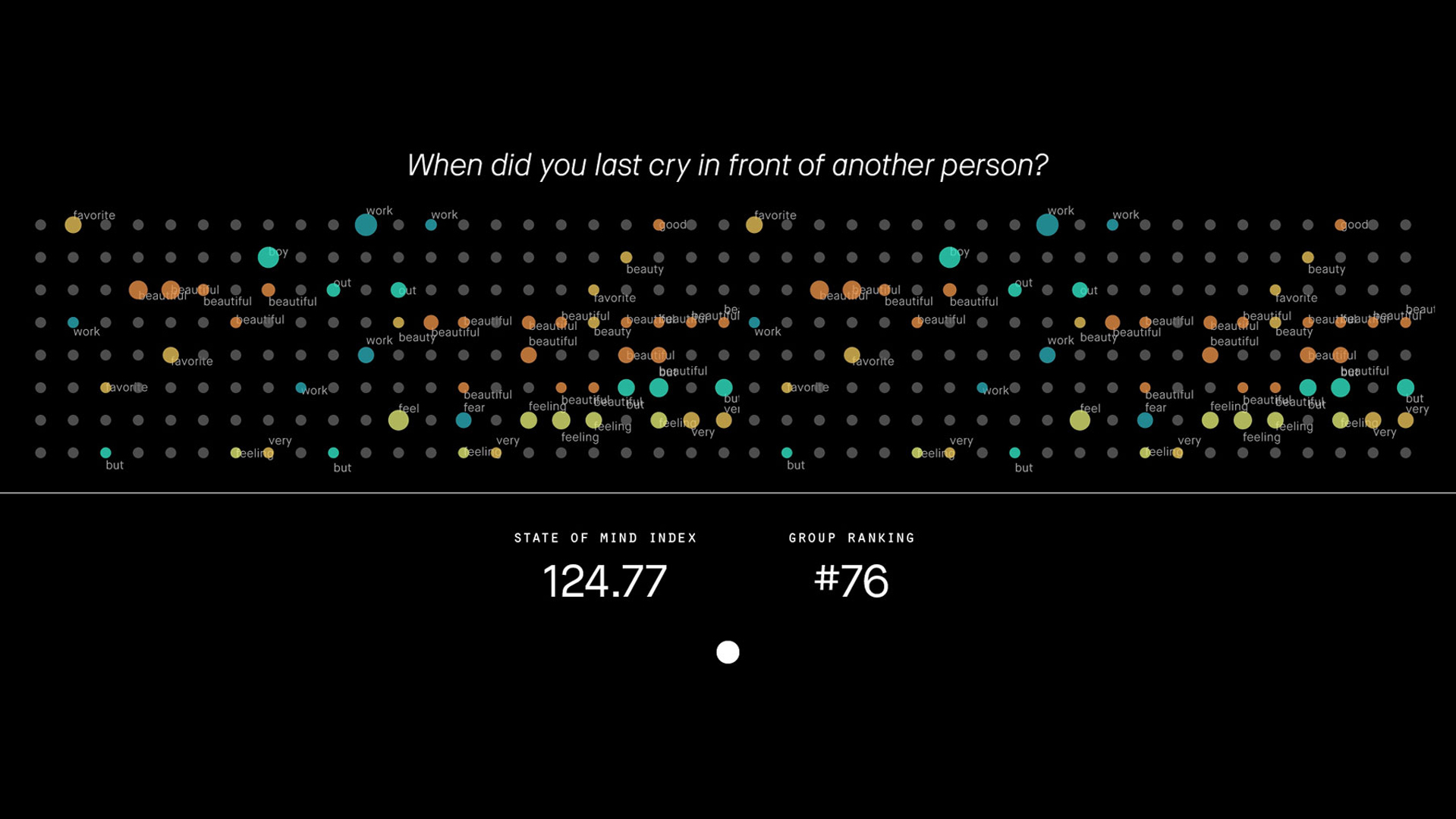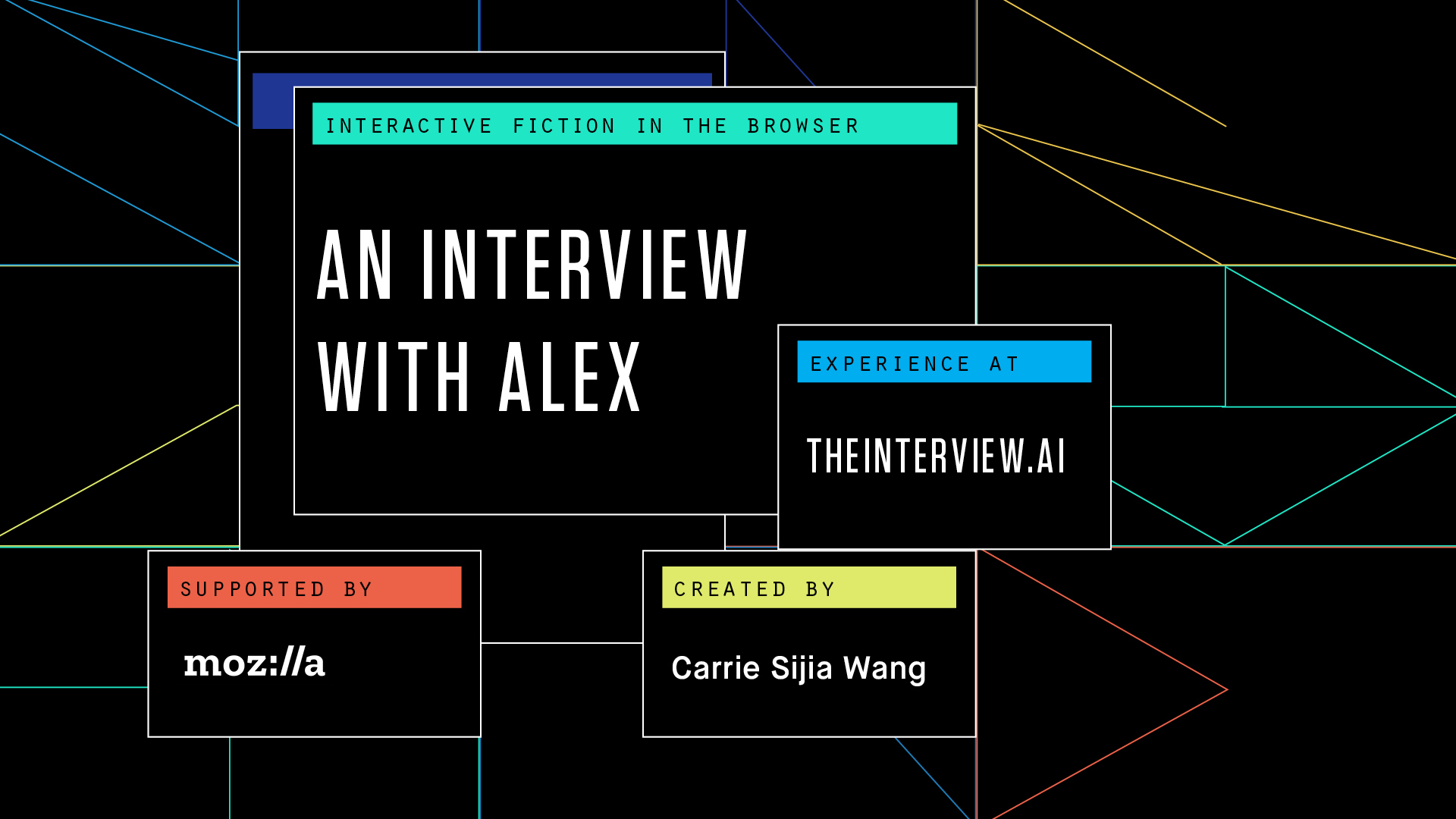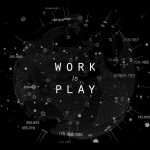Carrie Sijia Wang: An Interview With ALEX
Artist(s):
Title:
- An Interview With ALEX
Exhibition:
- SIGGRAPH 2021: Art with an Impact
-
More artworks from SIGGRAPH 2021:


Creation Year:
- 2020
Medium:
- Artificial Intelligence
Category:
Artist Statement:
An Interview with ALEX is a 12-minute interactive experience that engages the participant in a job interview with ALEX, a powerful artificial intelligence HR employed by a speculative tech giant called “Open Mind Corporation.” Through a science-fiction lens, the experience reveals how artificial intelligence (AI) and the gamification of work can be used as subtle tools of control in the interest of those in power.
The story happens in a future online workplace. The participant plays the role of an interviewee on their way to becoming a Level 3 Professional Mini Gamer at “Open Mind Corporation.” ALEX, the automated human resources manager, guides the participant through a seemingly casual and fun interview, in which the participant plays games, reads news headlines, and gets tips from watching the current employees chat.
The experience takes an unnerving turn as ALEX starts to pressure the participant to keep playing the game, and demands them to be as open as possible when answering personal questions, such as “How do you feel about your relationship with your mother?” How does one feel on an everyday basis in a workplace of total gamification and surveillance managed by automation? This is the question I seek to explore with An Interview with ALEX. In addition to investigating the future of work, the project is particularly interested in the thoughts and feelings of the individuals in an AI-managed environment.
AI takes on the bias of its creators and the social system it operates in. Because of the scalability of AI and machine learning, the bias embedded in the products using these technologies can easily multiply beyond human control. An Interview with ALEX aims to bring up the potential issues of letting technology take over without fully understanding how it works, whom it works for, what consequences it will lead to, and who will end up paying for these consequences. With technology taking over jobs being an inevitable trend, my hope is that the decision makers behind technological products can adopt a less tech-centric, more socially-aware way of thinking, and that the people who are going to be affected can get the resources to learn about how these technologies work, equipping them with the tools to say no, or to propose something better.

